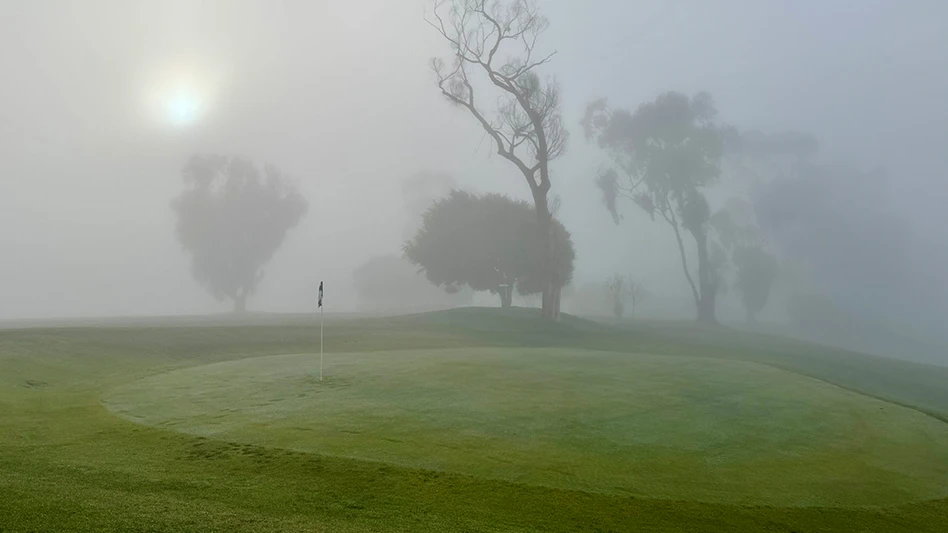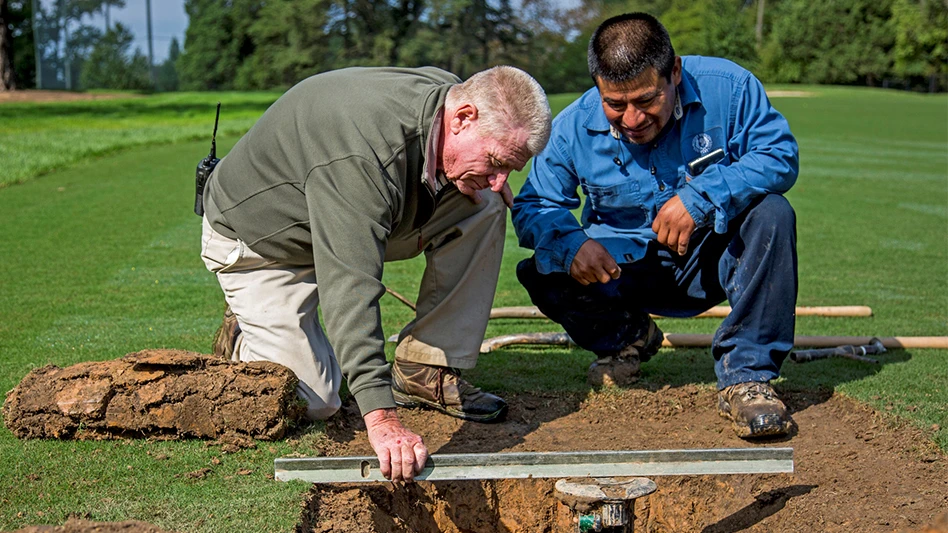
Growing up in a small town in northern Connecticut had its highs and lows, but one of its best features for a kid who needed to be outside and on the move was the 9-hole private golf club set in the middle of a 5,000-acre nature preserve. Litchfield Country Club provided me with a four-season playground for fishing, hiking, boating and running. But most importantly, it was my introduction to golf.
My dad used the club to keep me out of the house, and, not coincidentally, out of trouble. When I was just a little squirt, he made me his “caddy,” really his target dummy during practice. And you wonder why I am the way I am? Let’s just say dad was very accurate with his 3-iron.
Pretty soon I was a real caddie, learning the basics of the game, starting with a simple rule: Show up, keep up, shut up. With experience, I began picking up the nuances, and pretty soon “shut up” became “speak up,” and I became an asset to the members and pro, who turned to me for “special” guest and big matches. As a summer job, caddying also helped me get in shape for high school sports.
When I turned 16, I needed money to help pay for college, so I signed on as a member of the grounds crew. It was still the most fun I’ve ever had on a golf course. There were just four of us, and that included superintendent Billy Bianowicz, who over seven summers taught me how to do almost every task he did except spraying fungicides for greens. He also taught me a fierce work ethic that I still try to practice every day.
From that beginning, I’ve forged a career that has taken me around the world, seeing the best courses, working with the most talented professionals and researchers, and enlarging my “family” of others who’ve made the golf industry their home.
I saw something else in small-town golf that isn’t always on display elsewhere: appreciation. There were four 9-hole clubs within a short drive of my childhood home, and at every one the players truly appreciated what the maintenance crews did to present the best possible playing conditions, keep the turf alive in the summer heat and make things extra special for the big events. Every superintendent wants to be recognized for their efforts, but in a small town — under an extra-sharp microscope —it was particularly gratifying that people noticed.
Life at small-town clubs, many without labor and big-time maintenance budgets, evokes a simpler time, a nostalgia that I often wish golf could re-create. It’s certainly a different feel from what I get at the big-name, prestigious clubs I frequently visit now, where the focus is on “real” championships or over-the-top conditioning.
Which isn’t to say some of the small-town feel doesn’t remain. When I managed municipal courses for American Golf in the City of Miami, I saw the same kind of friendships and camaraderie from the groups of regulars who thought of these public courses as their own private havens. Their weekly beer leagues and the “big money” games ($500 Nassaus!) were just as joke-filled and pressure-packed as my dad’s rounds at Litchfield a generation or two before. And as conditioning improved during my tenure, I became “their guy,” almost one of them as Miami Beach police, firefighters, EMS and the local political scene played, ate and occasionally drank a beverage. The stories still ring in my head. They recognized the improvements and always let me know they appreciated our efforts.
During my years at the USGA — where most of the clubs I visited were in the upper tier — I’d drive from championship venue to venue whenever I could. It gave me time to think, but it also gave me the chance to find an out-of-the-way public course where I could hit some balls and maybe tee it up. After worrying about major-championship agronomy to where the grandstands would go, it was a pleasure to pay a few bucks, tee it up with some locals and experience a very different golf community.
One year, driving home from Oakmont Country Club, I got stuck in a bumper-to-bumper backup on the Pennsylvania Turnpike. I got off soon as I could and quickly drove into the parking lot of a “cornfield” golf course and into an outing of the Western PA Lumberman’s Association. Suddenly I became the “new ringer” member of the WPLA, won a few points for my team, and helped them capture the trophy. As we got to talking, it turned out that the guys knew my wife’s grandmother from church — and knew all about her coconut cream pies.
Small-town golf.

Explore the February 2024 Issue
Check out more from this issue and find your next story to read.
Latest from Golf Course Industry
- Beyond the Page 65: New faces on the back page
- From the publisher’s pen: New? No way!
- Indiana course upgrades range with synthetic ‘bunkers’
- Monterey Peninsula CC Shore Course renovation almost finished
- KemperSports and Touchstone Golf announce partnership
- PBI-Gordon Company hires marketing manager Jared Hoyle
- Mountain Sky Guest Ranch announces bunker enhancement project
- GCSAA names Joshua Tapp director of environmental programs





